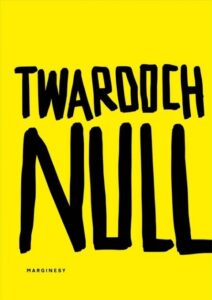Critics have placed The Road to Nowhere together with novels concerned with the totalitarian experience, such as those by Orwell or Solzhenitsyn

Critics have placed The Road to Nowhere together with novels concerned with the totalitarian experience, such as those by Orwell or Solzhenitsyn

Translation rights: Elkost International Literary Agency, klimin@gmail.com
Foreign language translations: The book has been translated into Czech, English, Estonian (in preparation), French, German, Hungarian, Lithuanian, Romanian.
The Road to Nowhere is Józef Mackiewicz’s first novel. The author began writing it during World War II, and it was finally published in London in 1955. The story takes place during the Soviet occupation in Poland’s eastern territories, primarily in Vilnius, which is never directly named, from the winter of 1940 to the summer of the following year. The collective hero of the novel is the multinational, diversified society, forced to take a stand against the enslavement that cannot be described in a traditional manner or schemas. The Red Army represents physical violence, but it is primarily terror of a new type, represented by Bolshevik ideology imposed by its propaganda (“concentrated lies”).
The action of The Road to Nowhere focuses on the fate of Paweł, an intellectual, writer and journalist, who tries to avoid collaborating with the new rulers. He works as a lumberjack, as a coachman and smuggler. He gets romantically involved, tries conspiracy, and finally hurriedly escapes with his wife, in order to avoid deportation to Siberia. The increasing isolation of Paweł is an example of the increasing atomisation and degradation of society, even at the level of family life. The reason for succumbing to this process is above all fear in its various forms and intensities. A good deal of space in the novel is devoted to fascinating discussions of ideas between the protagonists on the topic of Russia, communism, religion and God. The descriptions are also important, documenting the everyday life under the occupation and describing the beauty of nature indifferent to human dramas. The novel draws upon nineteenth-century critical realism, while enriching it with elements of reportage and authentic documentation. The ambivalent title has been interpreted as a succinct definition of communism, but also as a pessimistic description of the situation of people rebelling against totalitarian rule. Critics have placed The Road to Nowhere together with novels concerned with the totalitarian experience, such as those by Orwell or Solzhenitsyn.
Maciej Urbanowski
Translated by Christopher Garbowski
Selected samples
She climbed her first peaks in a headscarf at a time when women in the mountains were treated by climbers as an additional backpack. It was with her that female alpinism began! She gained recognition in a spectacular way. The path was considered a crossing for madmen. Especially since the tragic accident in 1929, preserved … Continue reading “Halina”
First, Marysia, a student of an exclusive private school in Warsaw’s Mokotów district, dies under the wheels of a train. Her teacher, Elżbieta, tries to find out what really happened. She starts a private investigation only soon to perish herself. But her body disappears, and the only people who have seen anything are Gniewomir, a … Continue reading “Wound”
A young girl, Regina Wieczorek, was found dead on the beach. She was nineteen years old and had no enemies. Fortunately, the culprit was quickly found. At least, that’s what the militia think. Meanwhile, one day in November, Jan Kowalski appears at the police station. He claims to have killed not only Regina but also … Continue reading “Penance”
The year is 1922. A dangerous time of breakthrough. In the Eastern Borderlands of the Republic of Poland, Bolshevik gangs sow terror, leaving behind the corpses of men and disgraced women. A ruthless secret intelligence race takes place between the Lviv-Warsaw-Free City of Gdańsk line. Lviv investigator Edward Popielski, called Łysy (“Hairless”), receives an offer … Continue reading “A Girl with Four Fingers”
This question is closely related to the next one, namely: if any goal exists, does life lead us to that goal in an orderly manner? In other words, is everything that happens to us just a set of chaotic events that, combined together, do not form a whole? To understand how the concept of providence … Continue reading “Order and Love”
The work of Józef Łobodowski (1909-1988) – a remarkable poet, prose writer, and translator, who spent most of his life in exile – is slowly being revived in Poland. Łobodowski’s brilliant three- volume novel, composed on an epic scale, concerns the fate of families and orphans unmoored by the Bolshevik Revolution and civil war and … Continue reading “Ukrainian Trilogy: Thickets, The Settlement, The Way Back”

























































































































































































































































































































